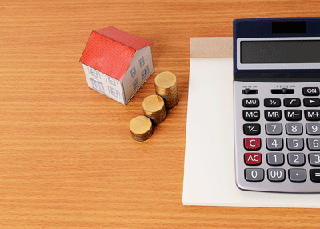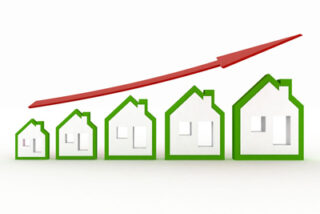Quote of the Week
“The Australian Performance of Construction Index for new orders in the house building sector has moved into expansion for the first time since February 2020, indicating that HomeBuilder is having a positive impact on the detached house market.”
Housing Industry Association economist Angela Lillicrap
Budget Will Boost Housing Market
 The housing market will be greatly boosted by this week’s Federal Budget, with Treasurer Josh Frydenberg announcing $507 billion in tax cuts, cash payments and wage subsidies to drive business investment and create jobs.
The housing market will be greatly boosted by this week’s Federal Budget, with Treasurer Josh Frydenberg announcing $507 billion in tax cuts, cash payments and wage subsidies to drive business investment and create jobs.
The Treasurer unveiled a $74 billion jobs and tax stimulus plan, including tax cuts of up to $2,745 for 11 million Australians, $200-a-week wage subsidies for young workers and almost $35 billion in business tax breaks.
Frydenberg says the recovery plan will “rebuild the Australian economy and secure Australia’s future”. Business, industry groups and universities roundly endorsed the package.
PIPA chairman Peter Koulizos says there’s plenty of good news for real estate consumers in the Federal Budget.
“The job creation initiatives and tax cuts announced will support the property market, including helping young people not only stay in their rental properties but also move into home ownership,” he says. “The additional 10,000 places in the First Home Loan Deposit Scheme will also enable more prospective home buyers achieve their ownership dreams.”
Credit Laws Allow Buyers Extra $70,000
 Home loan customers may be able to borrow up to $70,000 more under changes to the consumer credit laws, says Canstar group executive of financial services Steve Mickenbecker.
Home loan customers may be able to borrow up to $70,000 more under changes to the consumer credit laws, says Canstar group executive of financial services Steve Mickenbecker.
The changes would see banks revert to a more relaxed approach to living expenses when assessing a loan. There would also be less paperwork, speeding up the time it takes to have a loan approved.
Based on an average income of $80,000 and a 20% deposit, a residential property buyer could potentially borrow $510,000 rather than $440,000, says Mickenbecker.
During the Hayne Enquiry into the finance sector, the banks were castigated for their methods in assessing a client’s ability to repay a loan, relying on simplified approaches rather than a thorough investigation. The latest changes are designed to protect consumers against taking on a debt they cannot afford while providing credit into the economy at a critical time.
The changes would put upwards pressure on house prices by creating more demand.
Growth Turns Housing Market Around
 September saw a strong turn around in housing market sentiment – consumer confidence increased, new listings rose and six of the eight capital cities recorded a rise in home values over the month, according to CoreLogic’s Hedonic Home Value Index.
September saw a strong turn around in housing market sentiment – consumer confidence increased, new listings rose and six of the eight capital cities recorded a rise in home values over the month, according to CoreLogic’s Hedonic Home Value Index.
The home value index shows a 0.1% fall in dwelling values nationally, the lowest in three months. The rate of decline across Sydney’s market has been consistently easing since July and the remaining capital cities (except Melbourne) have all delivered some level of growth.
Darwin leads with its prices up 1.6% in September, followed by Adelaide (up 0.8%) and Brisbane (up 0.5%).
The combined regional areas were up 0.4%, with growth recorded in the regional areas of NSW, Qld, SA and Tasmania.
“The aggregate effect of low mortgage rates, low inventory levels, government incentives and improving consumer sentiment seems to be outweighing the negative economic shock brought about by the pandemic,” says Tim Lawless, CoreLogic head of research.
National FHB Scheme Extended
 The Federal Government’s First Home Buyer Loan Scheme is to be extended to support the residential construction industry and help first-home buyers to enter the market sooner.
The Federal Government’s First Home Buyer Loan Scheme is to be extended to support the residential construction industry and help first-home buyers to enter the market sooner.
The extension will allow an additional 10,000 FHBs to obtain a loan to build a new dwelling or purchase a newly-built dwelling, which has not been rented out, with a deposit of 5%. The Government will guarantee up to 15% of the loan.
The Scheme will be available from 6 October 2020 until 30 June 2021.
The Property Council of Australia welcomes the move because it will boost construction activity. The extension will also provide additional support for apartment construction which has seen a downturn during the pandemic.
Price caps for the scheme will be lifted, allowing Sydney buyers to purchase a $950,000 home; the previous limit was $700,000 and buyers were not restricted to new builds.
Melbourne’s cap will lift to $850,000 from $600,000, while Brisbane will lift to $650,000 from $475,000.
Business Conditions Improve: NAB
 Business conditions improved in September, recording an increase in the areas of trading (up 6 index points), profitability (up 2 index points) and employment (up 8 index points), according to the September NAB Monthly Business Survey.
Business conditions improved in September, recording an increase in the areas of trading (up 6 index points), profitability (up 2 index points) and employment (up 8 index points), according to the September NAB Monthly Business Survey.
The increased confidence has built on the gains of last month and is now well above the trough in March, after the pandemic hit.
Conditions are now above average in WA, SA and Qld, pointing to an ongoing recovery in those states – and though NSW remains negative, it also improved in the month.
The report says: “Confidence rose in most industries in the month, though the gains in retail and recreational & personal services were marginal; and finance, business & property services was unchanged in the month. Confidence is now neutral or positive in all industries except retail and the services industries – personal & recreation and finance, business & property services.”




